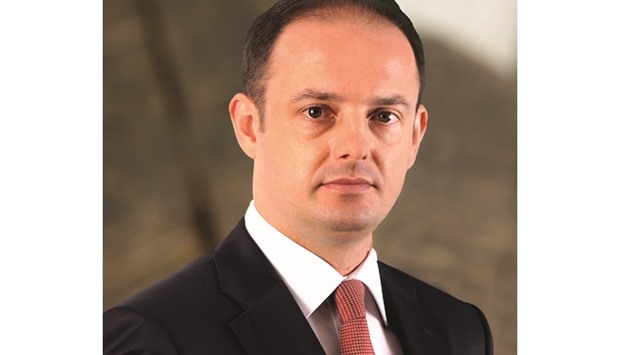The Turkish cabinet approved the appointment of Murat Cetinkaya as the new chief of the central bank yesterday, government spokesman Numan Kurtulmus said, reassuring investors who had feared a power struggle over the nomination.
Current Governor Erdem Basci’s term expires on April 19 and there had been market concern that President Tayyip Erdogan, a vocal advocate of low interest rates despite Turkey’s high inflation, might seek to impose a candidate of his choice.
A government official and an economy official both told Reuters earlier that Prime Minister Ahmet Davutoglu had discussed the nomination with Erdogan.
Cetinkaya, born in 1976, has been a deputy governor at the central bank since June 2012. He has a background in Islamic banking, beginning his career at Albaraka Turk and working as a deputy director at Islamic lender Kuveyt Turk in his last private sector position before joining the central bank.
“Compromise candidate, so good that the presidency and government are working together on this ... A battle over the nomination would have been very market negative,” Timothy Ash, strategist at Nomura, wrote in a note.
But economists cautioned that his monetary policy stance was not well known and that he would need to win the confidence of the market. He will chair his first policy meeting on April 20.
“I have doubts about whether Cetinkaya can fill Basci’s shoes either academically or in terms of expertise. His stance on monetary policy will be decisive from now on,” said Haluk Burumcekci of Istanbul-based Burumcekci Consulting.
Former central banker and Hurriyet newspaper columnist Ugur Gurses said that Cetinkaya’s background in Islamic banking suggested his appointment was backed by Erdogan, who wants to see the sector developed in Turkey.
“I don’t understand why the market celebrates ... I think the new governor will be more courageous than Basci on interest rate cuts,” he told Reuters.
Deputy Prime Minister Mehmet Simsek was earlier quoted by the state-run Anadolu Agency as saying that the new central bank governor would come from within the institution and would be named in the coming days.
Basci’s reluctance to cut interest rates had frustrated Erdogan, who argues Turkey needs lower borrowing costs to stoke growth, unnerving investors worried about political influence over monetary policy.
Other senior figures in government saw Basci as a steady hand in difficult economic times, and fear Turkey can ill-afford a disruptive change at the top of the central bank when it is facing growing economic headwinds.
The central bank kept its main interest rate on hold for the 13th consecutive month in March but cut its overnight lending rate, the upper band of its “rate corridor”, in a move which some economists saw as a sop to political pressure.
Erdogan said yesterday banks should lower interest rates on consumer loans, while one of his aides said the central bank should continue to cut the overnight lending rate.

Cetinkaya, born in 1976, has been a deputy governor at the central bank since June 2012. He has a background in Islamic banking, beginning his career at Albaraka Turk and working as a deputy director at Islamic lender Kuveyt Turk in his last private sector position before joining the central bank.
